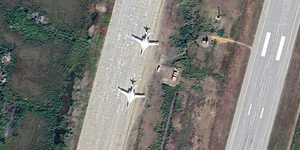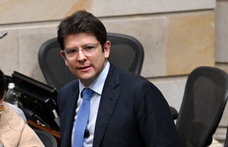Hungary Tomorrow project
Five terms - how many more?
Ibolya Dávid , recently confirmed in her position as leader of the Hungarian Democratic Forum, believes her party could have a government role after the next elections. The question is whether the sympathy felt to a party which manages to be everyone's enemy can be converted into votes.
Cross-country
It is most unlikely that millions of Asians will flood Hungary in the near future, and no more likely that workers will leave the poorer North East of Hungary to flood a wealthier western Hungary.
The Mazsihisz boomerang: boycotting the ceremonies
You might think it was some kind of anti-Semitic provocation. But no, the press release is attributable to the chairman of Mazsihisz, an organization that often speaks up in the name of Hungary's Jewish community.
In time and space
In place of Janos Kadar's shadow, the Socialists' new temporary headquarters is overshadowed by the shades of Ignac Martinovics and Bela Kun.
Symbols
In central and eastern Europe, the symbols of totalitarian ideals were banned as part of the transition to democracy. Laws were passed, but it has become clear that there is no perfect solution. The symbols of left- and right-wing totalitarianism affect the public differently, as do the pictures of different movements' leaders. For some, these symbols cause derision, but for others even highly stylised forms of those symbols are a cause of fear, and so are useful to a radical minority bent on provoking the majority.
"Viktor Orban is playing a dangerous game”
It's commonplace with Democratic countries that reporting on international affairs is more balanced and objective than that on domestic affairs. But faced with the Austrian press we have to concede that there are exceptions. Die Presse and Der Standard show few signs of objectiveness and balance. In their reports, there is the unmistakable whiff of cold civil war.
Basescu blackmailing the RMDSZ
Zsolt Nagy, minister for IT and telecommunications in the Romanian government, stands accused of treachery and spying. The Democratic Alliance of Hungarians in Romania is standing by its politician. The minister spoke to hvg.hu.
Interview with the candidate
In a few days' time, the Free Democrats will elect a new president to succeed Gabor Kuncze. Fodor or Koka? Below, Gabor Fodor gives his views. He is seeking a fundamental change in the party's policies, he would enter into a dialogue with Fidesz and broaden out the party's electoral base. He would not shy away from state intervention aimed at helping the disadvantaged.















